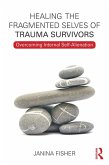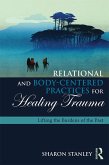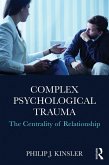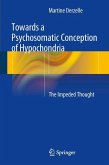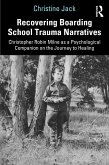Dieser Download kann aus rechtlichen Gründen nur mit Rechnungsadresse in A, B, BG, CY, CZ, D, DK, EW, E, FIN, F, GR, HR, H, IRL, I, LT, L, LR, M, NL, PL, P, R, S, SLO, SK ausgeliefert werden.
Janina Fisher, PhD, author of Healing the Fragmented Selves of Trauma Survivors and Transforming the Living Legacy of Trauma
"Clinical and scientific progress depends upon a differentiation and integration of concepts. Benau's text is an admirable instance of this. Distinguishing and analyzing several kinds of shame and pride, Benau helps clinicians to affectively, empathically, and cognitively meet individuals who suffer from the problematic forms of these social emotions. Several case examples serve as a major inspiration for therapists to help people develop effective ways of relating to themselves and others. Recommended!"
Ellert Nijenhuis, PhD, independent psychologist and psychotherapist in The Netherlands and Portugal
"A marvelous book! Benau introduces an integrated view of traumatic shame states and its neglected counterpart, pride states. Accessible and erudite, he presents a bridge from theory/concepts to the treatment of patients suffering from maladaptive shame and pride. Therapists learn to navigate ruptures and impasses, creating golden opportunities for transformation. This is a must read for anyone dealing with shame with relational trauma in psychotherapy."
Hanna Levenson, PhD, professor at the Wright Institute in California, USA
"Benau offers a major contribution to understanding shame and pride and to the field of psychotherapy itself. His taxonomy of shame and pride feelings and states highlights the value of recognizing and working with them. About shame he says, 'to not name shame is to do shame's bidding.' He sensitively indicates the challenges that patients and therapists have in such naming. Psychotherapy session transcripts bring the concepts to life and show a multimodal approach for healing problematic shame and pride and facilitating their beneficial forms. This book is the fruit of not only a fine and expansive mind but also a warm and open heart."
David S. Elliott, PhD, coauthor of Attachment Disturbances in Adults




